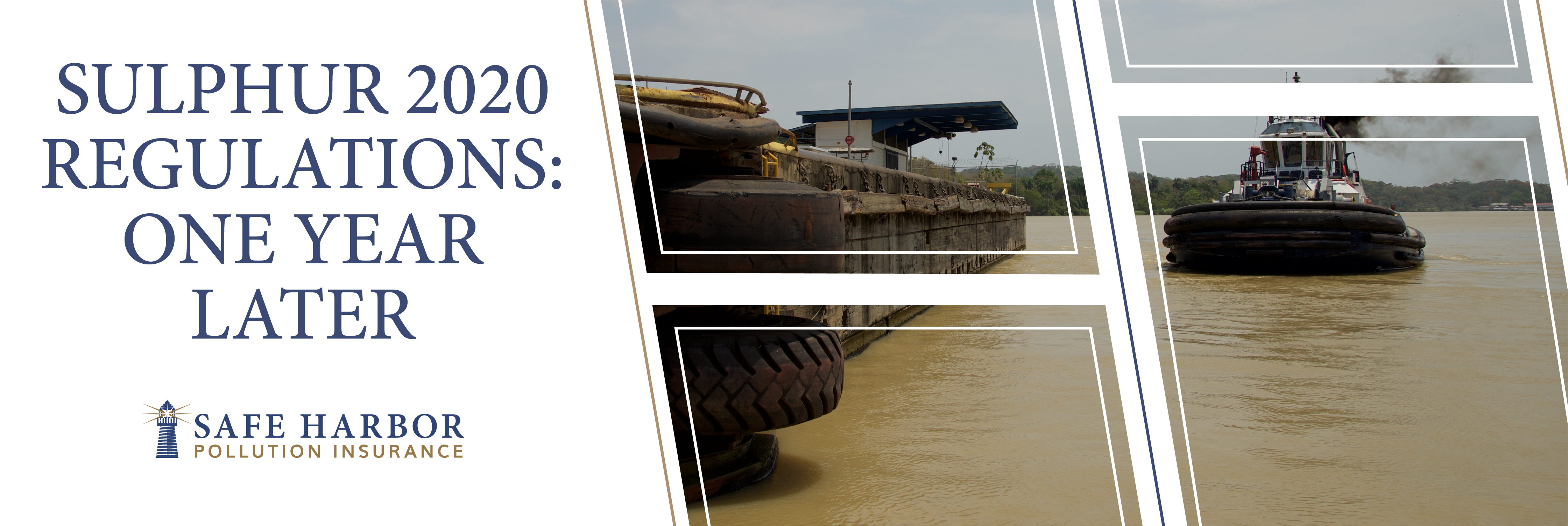One year ago, on January 1, 2020, the International Maritime Organization (IMO) limited the allowable sulfur content in marine fuel, reducing the amount from 3.5% to .50% m/m (mass by mass). Known as IMO 2020 or Sulphur 2020, this cap is arguably the strictest environmental regulation in ocean transport to date and promised to have a widespread impact on rates, operations, and technologies.
Why IMO 2020?
Per the IMO, the impetus for this regulation was “Sulphur oxides (SOx) are known to be harmful to human health, causing respiratory symptoms and lung disease. In the atmosphere, SOx can lead to acid rain, which can harm crops, forests and aquatic species, and contributes to the acidification of the oceans...Limiting SOx emissions from ships will improve air quality and protect the environment.”
Who Must Comply?
The responsibility to comply with Sulphur 2020 falls on shipping companies. They must ensure their fleets meet the sulphur requirement in one of these ways:
- Using compliant fuels, such as “very low sulphur fuel oil” (0.5% VLSFO), ultra-low sulphur fuel oil (0.1% ULSFO) or Marine Gas Oil (0.1% MGO)
- Installing scrubbers to burn compliant and non-compliant fuels using an exhaust gas cleaning system (EGCS)
- Using alternative fuel oils, such as LNG
Acting in an enforcement capacity, flag and port state control check to ensure ships are compliant with the sulphur regulation.
Sulphur 2020 In Reality
With the sulphur cap being fully in effect for only one year, the transportation industry is still adapting to the new regulation. Low-sulphur fuel is in high demand and refining companies are racing to respond to that demand. There is no doubt that there have been impacts to fuel spend for both the maritime and trucking industries.
Experts anticipate that Sulphur 2020 will inevitably result in increased fuel prices, which will then raise shipping and freight rates globally. Exactly how much those costs will increase depends—on supply and demand, as well as unpredictable geopolitical and economic factors.
Also, there has been a significant increase in EGCS, or scrubbers, being installed on vessels. Some data estimates as more than 3,000 vessels were equipped with scrubbers by January 1, 2020. EGCS quality and reliability is a hotly debated topic, but these systems are a cost-effective means for many shipowers to achieve Sulphur 2020 compliance.
Additionally, The Fuel Oil Quality and Safety Survey was conducted between February and May of 2020 “with the aim to get a greater understanding of the quality of the new fuel oils and possible safety implications of the IMO 2020 sulphur regulation.” Survey results were published with a caveat that the findings cannot be considered representative of the world fleet, but did state that “as fuel oil properties are fluctuating, quality and safety problems will continue to be a challenge for the global shipping industry.”
2021 & Beyond
What this year holds for the shipping and transportation industry is difficult to predict, especially in light of the global pandemic. As the sulphur cap continues to impact costs and operations, it’s important to ensure your business is protected in any situation. Contact Safe Harbor to learn more about comprehensive coverage for vessels and shipowners.




